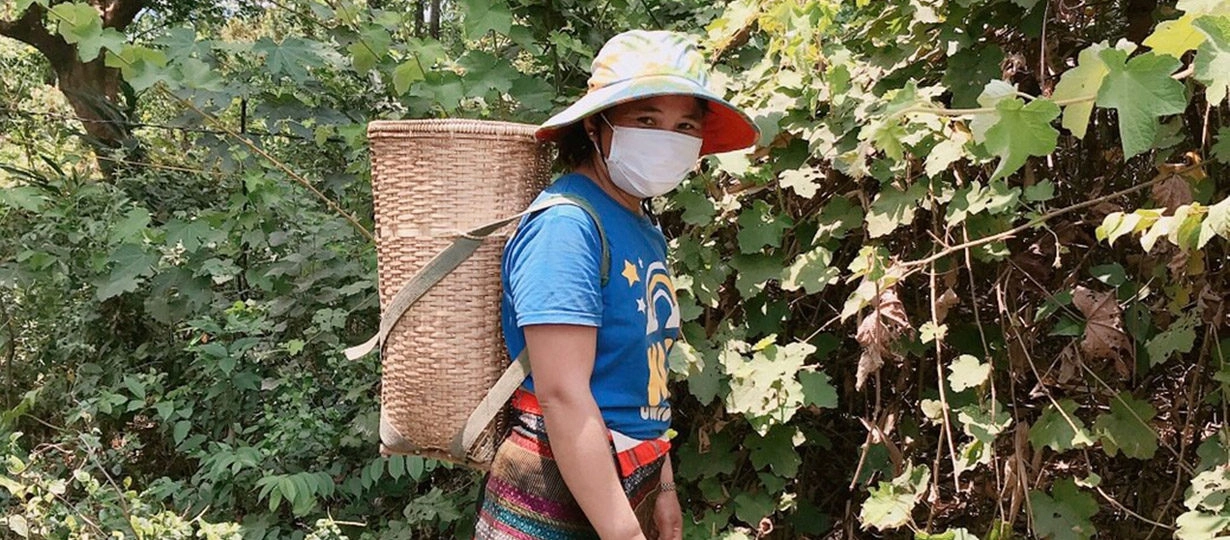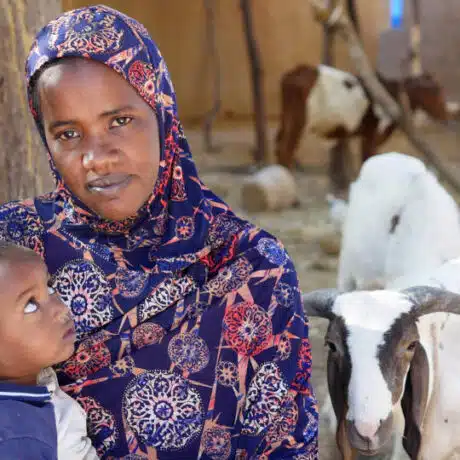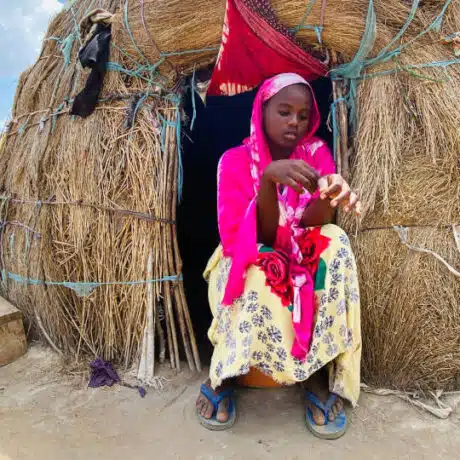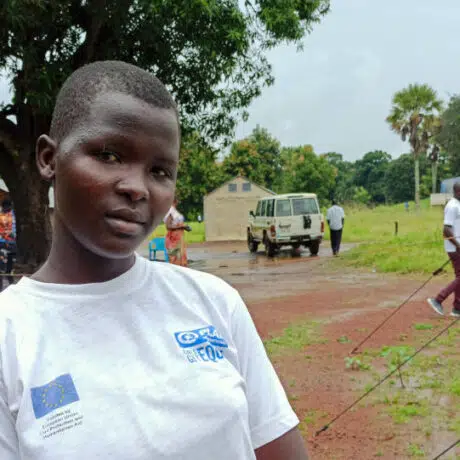News and Stories - Education - 11 December 2020
Getting girls ready for the future

We’re working in Vietnam to support girls’ education and training in ethnic minority communities.
Early marriage, poverty and household child labour are just some of the rights violations faced by young people in Vietnam, particularly girls, and the risk is even greater for girls from ethnic minorities.
While these are complex issues to address, education can provide a pathway out of poverty, to better career opportunities, healthier decisions and more freedom for girls to pursue their dreams.
Together with Plan International Vietnam, we began implementing our Girls Ready for the Future program this year, across five rural provinces in northern Vietnam.
Aiming to support girls from ethnic minority communities to stay in school and pursue a career path of their choosing, the program incorporates career guidance into the school curriculum, and provides access to career counselling, vocational training, and entrepreneurship opportunities.
Economic hardship amongst families from ethnic minorities often sees girls forced to give up their education, in favour of what can seem like the only option to alleviate it— marriage.
But, through the Girls Ready for the Future program, improved educational opportunities, coupled with a gender-equal and supportive environment, can reassure girls that education is the key to a brighter future, thus reducing the risk of early or forced marriage.
The program seeks to improve girls ability to make informed decisions around skill development and future employment options, by supporting the Ministry of Education and Training (MoET) in developing career guidance packages for grades six, seven, eight and nine. The career guidance package we developed for grade six and seven were tested in two provinces in collaboration with Vietnam Institute of Educational Sciences (VINES).
Plan International undertook field research in communities to assess the current situation around vocational education in secondary schools, and to identify local career/livelihood opportunities for women and girls of all ethnic groups.
Following Vietnam’s first confirmed case of COVID-19 in January, the government were quick to put restrictions in place, including limitations on domestic travel and gatherings, and assessments were carried out via an online survey.
These restrictions majorly disrupted Plan International Vietnam’s ability to deliver the other activities that had been planned, and the project shifted focus to address the immediate and ongoing impacts of the pandemic.
Through the program, 21 girls’ clubs across five provinces held meetings covering topic such as violence prevention, early marriage and COVID-19 prevention.
75 young people (not attending school) in rural areas were trained in breeding/raising techniques for ducks and rabbits, and 15 participants received further material support to implement livelihood initiatives. Also a 15 goats were supplied to three youth groups, so they could start raising livestock in their villages.
Furthering gender equality is a key component of this project, with activities seeking to empower women and girls to support themselves financially with meaningful work, and reduce the inequalities they face because of their gender and ethnicity.
This project was supported by the Australian Government through the Australian NGO Cooperation Program (ANCP), and complemented with funds generously donated to Plan International Australia from the Australian public.
Thuy’s story
Thuy and her family live in a mountainous village in Vietnam’s Lai Chau province. Agriculture is the main source of income for the 148 households in Thuy’s community, however the extreme climate conditions make life very difficult. Only one crop of rice can be cultivated per year, and livestock is often lost to the cold and dry season.
Thuy was nominated by her village to take part in a Plan International Australia livelihood activity as part of the Girls Ready for the Future program. Together with young people from across the community, Thuy learnt all about animal breeding techniques and livestock models that are suitable for the local context.
Plan International supported Thuy to procure 20 black ducks, animal feed and assisted her to take part in a training course on raising techniques, facilitated by the local veterinary staff.
Thuy is now able to support her family, generating an income by breeding and selling the ducks and their eggs in the local market.
“Before, I did not know how to increase my family’s income. Thanks to participating in this activity supported by Plan through the project ‘Girl ready for future’ that helped me step by step know how to take advantage of the opportunities and conditions available from the locality. From this activity, I hope it will “open the door” for me and my family to develop family economy, increase income and improve daily meals in the long term.”
She hopes other young women can also benefit from the Girls Ready for the Future project.
“What I want more is that young women in the village like me can generate income and have economic autonomy in the family, especially during the COVID-19 epidemic that happened.”




